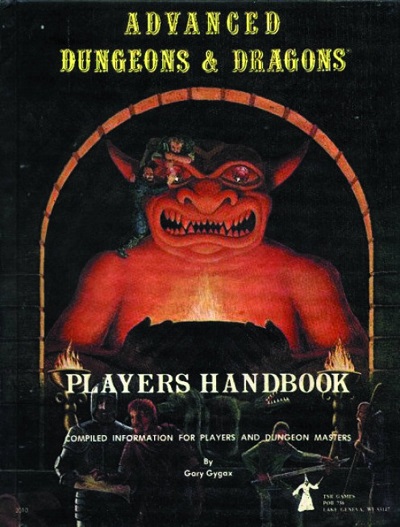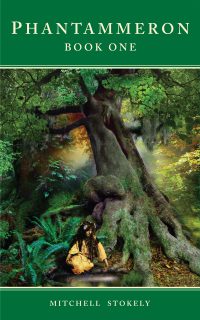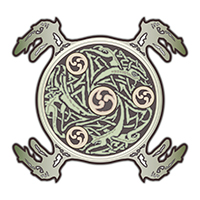The history of role-playing games the past 30 years has been fraught with failed re-invention. I would say more new games have failed today than past ones. Why? The history of Dungeons & Dragons since the 1970’s has radically changed – I argue for the worst. It’s become so complicated and focused on realism, power plays, and artifice its lost what made it great – its vast capacity for stimulating one’s imagination. And that is its great loss in the versions found today.

The late, great Gary Gygax – who helped create the first edition Advanced Dungeon’s and Dragon’s game in 1977 – would be horrified by the growing convolutions of editions of his beloved game that have evolved since!
Yet he would wonder at the thousands upon thousands of tournaments and millions of players around the world now consumed by role-playing and these more complicated fantasy gaming versions of his much simpler one. It’s become more popular than ever globally. But sadly, it’s become more weighted down by rules, character development, the struggle to win, and the fight to dominate versus the fun of pure adventure and exploration.
Part of what inspired me to become a writer in the 1980’s was playing 1st Edition Dungeons & Dragons. As “Dungeon Master” I developed a series of long adventures with my friends in the 1980’s. As the coveted yet tortured “rules master” and “adventure builder”. As DM I would become a sort of God over the game for the benefit of my adventurous friends, creating vast continents of peoples, kingdoms of magical elves, thunderbolt-casting wizards in tall towers, goblin armies, castles of storm giants, vast heavens of the Gods, dragon-filled catacombs, and all the endless fantasy worlds they all would inhabit.
It took everything in me to manage all of this of course…. to read and follow the vast rule books, organize dice and conflicts, and list the endless monsters my buddies would run into on these long campaigns. I illustrated many of my adventures, plotted thousands of beasts and monster encounters across vast maps and dungeons, and constantly rolled random treasures to be found by lucky players in some dusty corner of a dungeon. My imagination and some old graph paper were my only tools back then.
But I learned something about this early Dungeons & Dragons game in 1980……I discovered the vast, rich worlds of creatures and lands and magic that live in me. It’s this discovery that our minds are capable of dreaming up such gigantic, wondrous places that I soon realized all that ever was or could be lived in our minds alone. And I saw that a simple but well designed and humble game could facilitate such imagination in young minds. It convinced me of the genius of Gary Gygax and his vision in 1975 to help fashion such a game as 1st Edition Dungeons and Dragons.
Since then this amazingly simple but rich game has been destroyed by thousands of game designers that came later. These are people that have not invented anything original but simply ridden the coat tails of earlier, more innovative designers from the 1970’s. Layering into it their complex rules and realism it’s weighted players experiences down such that they now are but zombies of the complex rules in this new fantasy world, not the carefree adventurous players they once were.
I’ve gone with my son to see the endless games derived from D&D and it’s truly amazing. Yet something remains in the original game I sense is missing in most of what I’ve seen created since…..and that is old-fashioned “wonder”.
In this link below the author remembers his early gaming experience with 1st Edition Dungeons & Dragons which, minus the cigarettes, was very much my own. I was the Dungeon Master always in control of the fates of my friend’s characters. And playing that very exhausting role taught me discipline, humility, flexibility, generosity – but also the value of laws, governing, patience, and kindness. For to have power means measuring it like drops of gold for the taxing king, or water for the desert thirsty. It’s cautiousness and yet the freedom of wild adventure that came most into my style of play. But most of all it was limits; limits in how many monsters came into play, or how a vast underground series of tunnels yet benefited from limited yet rich details (like the thickness of cobwebs in a cave, the sound of dwarves mining for gems in the distance, or the glint of a new magic sword found in a chest). Such things were beyond fame and fortune but about the mind’s eye alone. All these things made my mind realize what it held beyond the game and what secrets it still held deep in my imagination. Such was the wonder of 1st Edition Dungeons and Dragons in 1980.
I stumbled on this article by David Goldfarb – Why first edition AD&D is king – By David Goldfarb who expressed my views so well:
“There were other great things about AD&D too, the masochistic appreciation of “low level” gaming, something we have undervalued up until relatively recently in modern games.” He nailed it in that one sentence. A lot of what this article remanences about I said 20 years ago when I left Dungeons & Dragons and gaming behind, bored by the increasing complexity of the game, and the phony, inflated fantasy life it created.
What we fail to recognize is often the past hides brilliant, inspired people that perfected things. The Golden Age of Dungeons & Dragons was 1979. Often Golden Ages are not known until they are long past. Gaming is no different. We assume things get better when they often just decline and by the time we finally recognize a Golden Age of Civilization has past us we fall blindly into its decadent decay struggling to recreate it until we too fall within this trap to perfect it, only making it worse until its bitter end.
Dungeons & Dragons great days are probably long past with the demise of the original untouched 1st Edition and its numerous replacements and perversions. Kids are so into realism and power-plays and fortune they are blind to humble adventure and the wonder of the Human imagination’s unknown country. So is America.
We should think about that beyond the role-playing game we lost years ago. For maybe it reflects a great age of America long past in some secret way we fail to acknowledge.
– the Author



